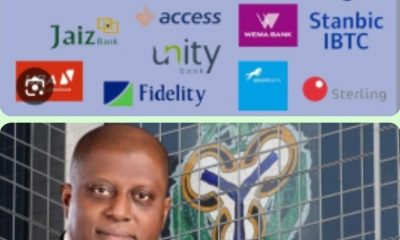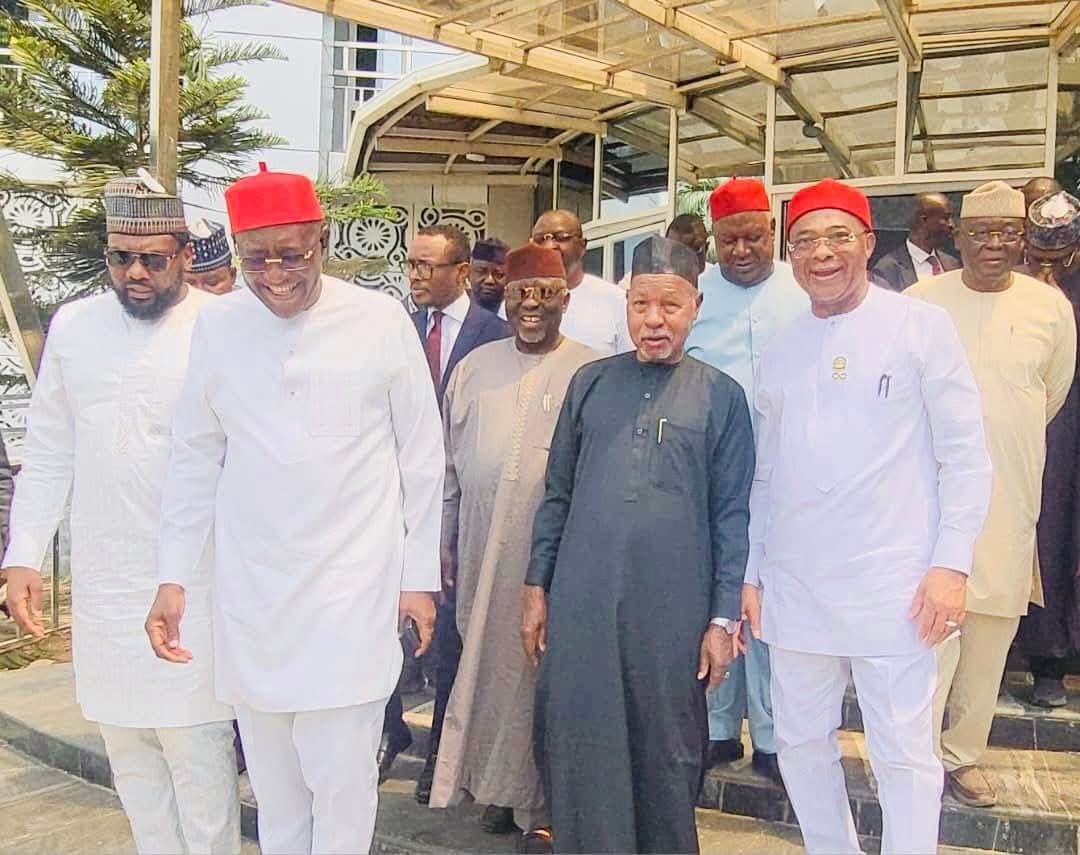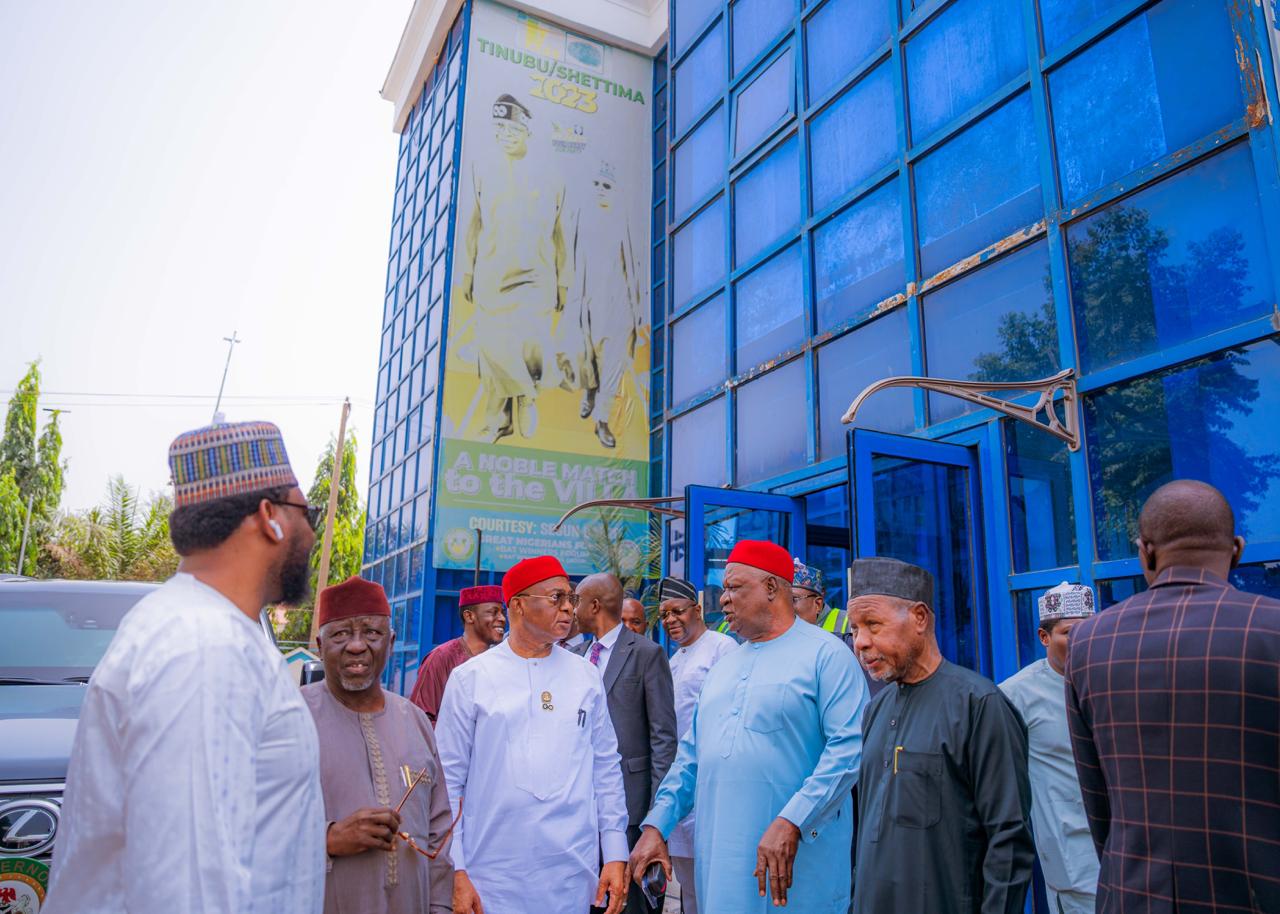Business
Towards A Stronger Union – Year 105 in Review
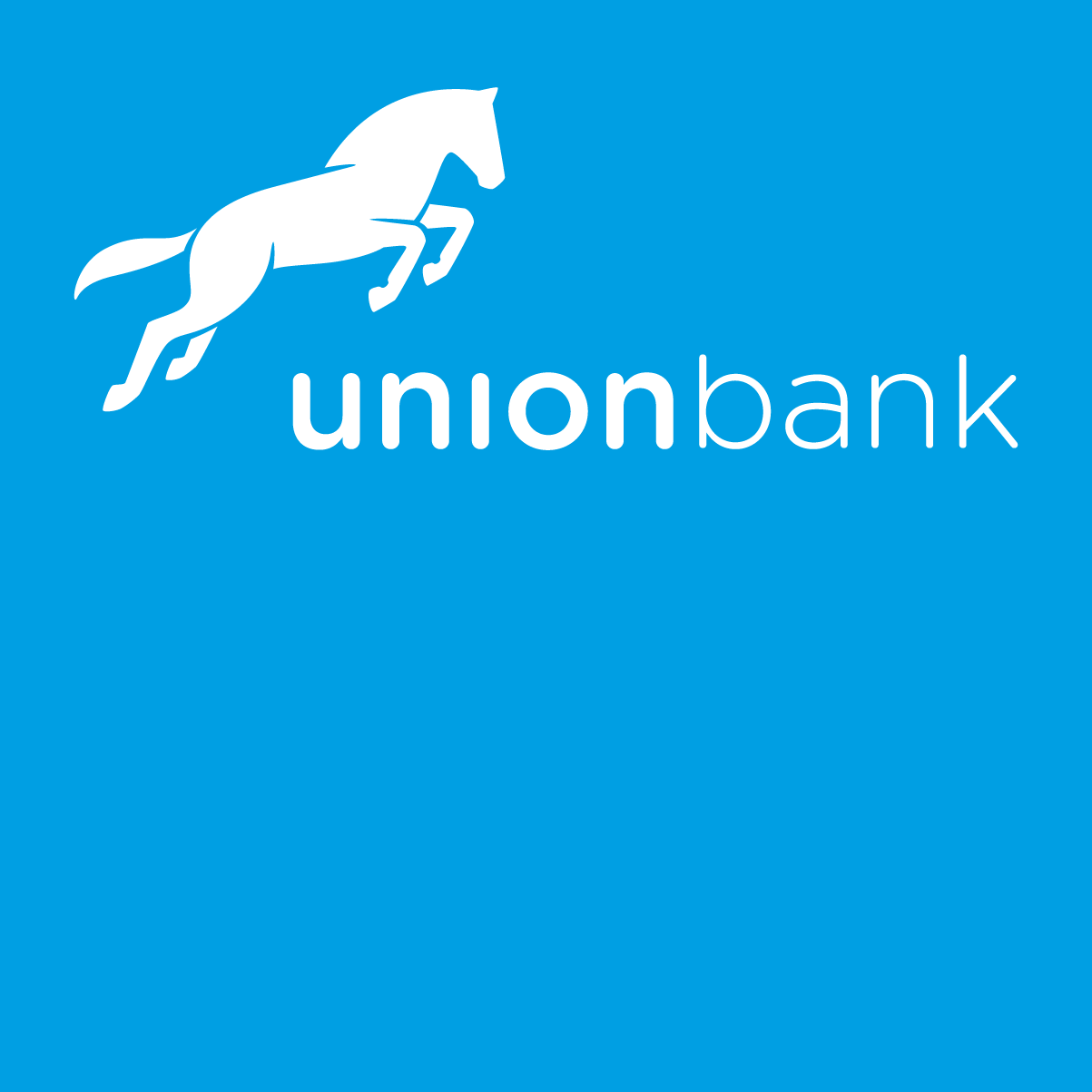
Towards A Stronger Union – Year 105 in Review
2022 was a remarkable year for Union Bank of Nigeria (“Union Bank”). The leading financial institution celebrated its 105th year of serving Nigerians with the announcement of the completion of a landmark transaction that saw the integration of the Bank with Titan Trust bank to form a stronger union. This announcement kicked off several noteworthy events and major milestones and Union Bank is pleased to recapitulate these milestones the Bank recorded in 2022. The noteworthy events in each month are summarised below under the respective headings.
January 2022: Union Bank celebrates its 105th year of operations as Titan Trust Bank gets nod from regulators for the official integration. The fusion of both entities created expanded networks, increased operational efficiency and capacity as well as improved service delivery for the customers. The new direction set Union Bank on a path of delivering prosperity and shared growth for its partners and customers all over the African continent.
February 2022: As part of its commitment to push beyond banking to promote innovation and creativity nationwide, Union Bank partnered with AfricaNXT – formerly known as Social Media Week, to host the largest gathering of innovators across Africa. As an organisation focused on accelerating digital innovation, Union Bank showcased some of its ‘Digital Ventures’ products (Kula, Booster and M36) at the event via an interactive booth. The Bank also hosted two insightful sessions – a panel discussion and a masterclass session – targeted at the tech ecosystem.
March 2022: As an organisation committed to leading the charge for inclusion and parity, Union Bank has consistently leveraged International Women’s Day (IWD) to promote impactful discourse and encourage positive action for gender equality 2022 was no different. In in line with the 2022 global theme #BreakTheBias, the Bank hosted an event to celebrate everyday women breaking biases and shattering barriers in their professional and personal lives.
A key highlight of the event was the inauguration of the first executives for Wehub – Union Bank’s Women Empowerment Hub which is an internal network launched in 2016 to motivate, connect and provide support to women within the Bank. The newly elected executives were charged with the task to drive the implementation of impactful initiatives aimed at advancing the Bank as a progressive place to work.
April 2022: As part of its ‘Beyond Banking’ strategy and commitment to innovation and technological advancement in Nigeria, Union Bank launched SpaceNXT a future-forward, purpose designed co-working technological and innovation hub built to promote innovation and encourage collaboration within the tech ecosystem in Nigeria. Located within the Union Bank Head Office in Lagos Nigeria, SpaceNXT provides an enabling environment where tech enthusiasts, visionaries and creators can converge for the propagation of new ideas. It is a launching pad for innovators to collaborate, develop and improve on ideas around digital systems and tech-based solutions.
May 2022: Following the completion of the official integration, and the subsequent receipt of all necessary regulatory approvals, Union Bank posted a formal notice of change in control with TGI Group, parent of TTB, now the majority shareholder and core investor in Union Bank. In addition to this, the Bank also announced the completion of the divestment of the Bank’s entire shareholding interest (direct and indirect) in its subsidiary, Union Bank (UK) Plc (“UBUK”) and the effective appointment of a Chief Executive Officer, Board Chair, and the reconstitution of a new Board of Directors. The new CEO, Mr Mudassir Amray and Board Chair, Farouk Gumel assumed office on the 2nd of June 2022
June 2022: Leading development bank Afrexim Bank backed Titan Trust Bank with the sum of $300,000,000 to support the integration with Union Bank. This is to ensure the Bank is well positioned to deliver value to its customers and shareholders.
July 2022: Following a successful first season, Union Bank announced the return of Save & Win Promo, its flagship campaign aimed at rewarding new and existing customers with cash rewards and other gift items worth over N55,000,000. The second edition of the nationwide campaign coincides with the Bank’s 105th anniversary and will benefit more customers to appreciate them for their support and loyalty over the years.
August 2022: As part of its continued commitment to UN SDG5, Union Bank continued its long-standing partnership with Junior Achievement Nigeria (JAN) to impact over 300 girls, in the 21st edition of the Leadership Empowerment Achievement and Development (LEAD) Camp which marked the eighth year of collaboration between JAN and Union Bank. The week-long event was used to provide guidance and improve the skill sets of the girls in areas of financial literacy, entrepreneurship, technology, creative arts, and entertainment. Development sessions in the program included coding, understanding sexual abuse, and personal hygiene, while the participants also received mentorship from respectable and high-ranking women in the country’s private and public sectors.
September 2022: Mr. Farouk Gumel, Chairman, Board of Directors, Union Bank of Nigeria delivered the keynote address that formed part of the theme for the 15th Annual Banking and Finance Conference tagged Repositioning the Financial Services Industry for an Evolving Global Context. In his remarks, Farouk Gumel emphasised how the rapidly expanding agricultural sector in Nigeria has the potential to grow exponentially and contribute not just to the advancement of the Nigerian economy, but also the welfare of the local farmers who form a large percentage of the unbanked.
He highlighted how Union Bank in their 105-year history continues to support the Nigerian farmer and pointed out that the recent integration with the parent TGI group has further opened more opportunities for the Bank to leverage international partnerships to service the rural economy.
In the same month, Union Bank partnered with WACOT Rice Limited – a foremost rice producing company and subsidiary of Tropical General Investment (TGI) Group, to provide banking solutions for 6,000 local farmers including men, women, and young people across 4 Local Government Areas in Kebbi State. This partnership, called the Kebbi Financial Inclusion Drive is in line with Union Bank’s commitment to boost financial inclusion in Nigeria.
October 2022: Union Bank signed a partnership with Mobihealth – a globally recognised, integrated telehealth provider based in the UK, facilitating health solutions for underserved communities in Africa. This first of its kind partnership is part of Union Bank’s commitment to enabling success for its customers. The Bank aims to leverage this partnership to expand access to high-quality and convenient healthcare services for its customers at discounted rates.
In addition, Union Bank also secured a $25 million funding line from Africa Agriculture & Trade Investment Fund (AATIF) to expand its agricultural business footprint in Africa. This funding aims to support the Bank’s agri-expansion and outreach strategy and is expected to further contribute to the growth of the competitive food and agricultural sector in Nigeria that is fully aligned with national priorities – including improving food security, increased agricultural production and local food processing.
November 2022: To expand its footprint in Africa, Union Bank signed an MOU with Attijariwafa Bank – a leading multinational commercial bank and financial services company based in Morroco. Through this partnership both Banks will develop new joint business opportunities for their respective customers that seek to support the trade finance and investment corridors between Nigeria and all the countries where Attijariwafa bank operates.
December 2022: To closeout it’s 105th year anniversary activities, Union Bank launched a brand-new sonic identity tagged ‘The Sound of Union. The launch of the Sound of Union – a 9-track EP, spanning different genres including afrobeats, highlife, jazz, alternative rock and more – is part of the Bank’s strategy to engage with todays and tomorrow’s generations. The goal of the launch is to leverage the universality of music to build better connections with new and existing audiences through this unique sound identity. The Sound of Union EP is now streaming exclusively on Boomplay.
Awards & Recognitions: In 2022, the Bank received several awards and recognitions both locally and globally including the Global Finance award for the Best SME Bank 2023, the Euro Money Euromoney ‘Highly Regarded’ Bank for Corporate Banking, Corporate and Social Responsibility (CSR) and Environmental, Social and Governance and ‘Notable’ Bank for SME Banking and Digital Solutions. We were also awarded the Middle East and Africa Banking Innovation Awards for Best Trade Finance Platform 2022, and Budgit Active Corporate Citizens award for Civic Investments.
Please note that as a summary, this is not a comprehensive listing of the Bank’s events and activities during each stated period. As we look ahead to 2023, Union Bank remains committed to providing simpler and smarter solutions for its customers.
Business
Time is of the essence,” the group stressed. “Every delay compounds the hardship and weakens faith in the system.”
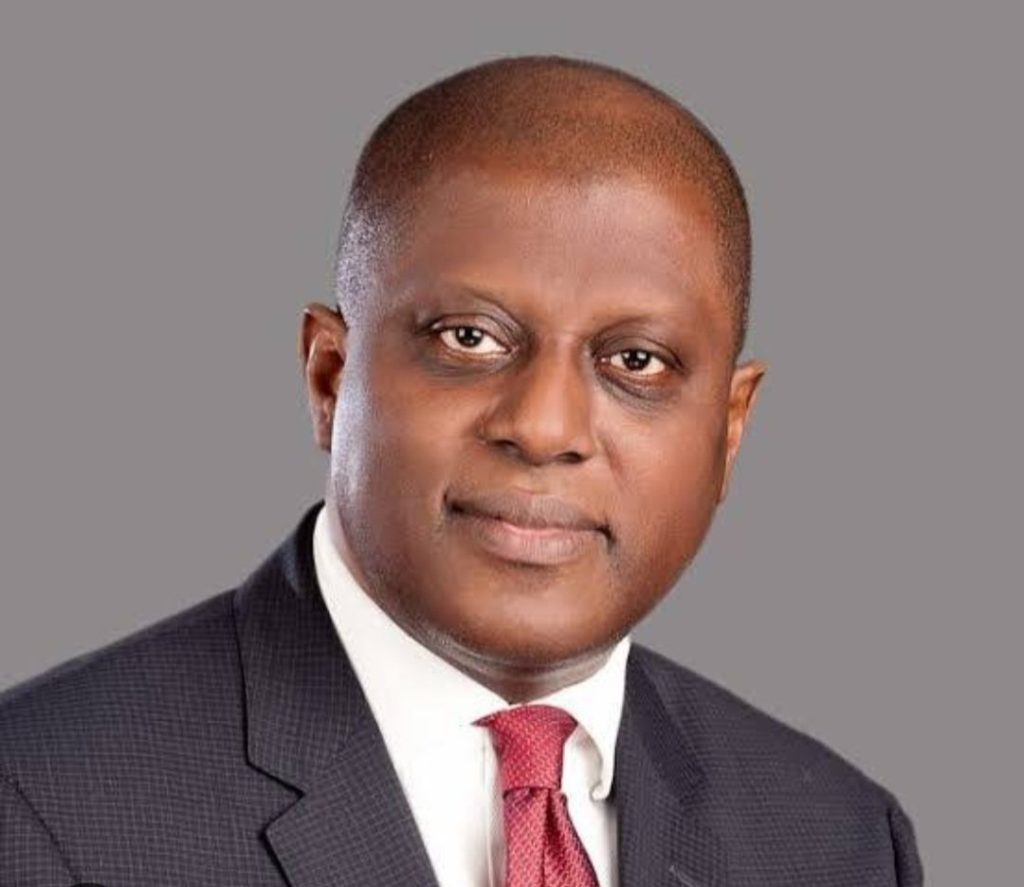
Trapped Funds, Fading Trust: Heritage Bank Depositors Demand Urgent CBN Bailout
By Ifeoma Ikem
Nearly two years after the collapse of Heritage Bank, thousands of depositors say they are still living with the financial and emotional aftershocks of a liquidation they insist was never meant to end this way. What began as regulatory reassurances has, in their view, spiralled into prolonged uncertainty, partial payments, and mounting hardship, thus prompting a fresh and urgent appeal to President Bola Tinubu and the Governor of the Central Bank of Nigeria, Olayemi Cardoso, to intervene decisively.
In a strongly-worded statement issued in Lagos, the depositors framed their demand not simply as a financial request but as a test of the country’s commitment to safeguarding public trust in its banking system. They are asking the Central Bank to provide immediate bailout funds to the Nigeria Deposit Insurance Corporation (NDIC) to enable full reimbursement of all affected customers, arguing that the pace of recovery so far has been painfully slow and grossly inadequate.
According to them, while insured deposits up to ₦5 million were covered under statutory provisions, payments beyond that threshold (known as liquidation dividends) have amounted to just 14.2 percent of their total balances in nearly two years. The first tranche of 9.2 percent was paid in April 2024. A second installment of 5 percent followed recently. For many, that has been the extent of relief.
At this rate, they argue, the mathematics simply does not inspire confidence.
“These are not abstract figures,” one depositor said. “They represent school fees, retirement savings, working capital for small businesses, cooperative funds, and life savings built over decades.” Among those affected, they say, are civil servants, retirees, entrepreneurs, and families whose livelihoods have been upended by the prolonged wait.
What deepens their frustration, they contend, is the memory of official assurances given before the bank’s collapse. When signs of distress first emerged, depositors recall that the Central Bank publicly and privately reassured customers that their funds were safe and that the institution remained sound. Those assurances, they say, influenced their decision not to withdraw their savings at the time.
The eventual liquidation therefore came as a shock, both financially and psychologically. “We trusted the regulator,” the group noted. “Between the Central Bank and the NDIC, we were told our funds would be repaid 100 percent.”
It is that promise, they argue, that must now be honored in full.
While acknowledging that the NDIC has begun verification and payment processes, the depositors insist that the agency lacks the financial capacity to conclude the exercise within a reasonable timeframe. They point to the scale of total deposits — estimated at about ₦650 billion — and the fact that only around ₦54 billion has been paid out in 18 months. In their view, that ratio raises serious questions about whether the liquidation process, left solely to asset recovery, can realistically guarantee timely reimbursement.
The group also referenced previous instances in which the Central Bank stepped in to stabilize distressed institutions, arguing that regulatory precedent supports intervention. They cited the reported ₦460 billion facility linked to Heritage Bank before its collapse, as well as substantial financial support extended to other banks to facilitate mergers or recapitalization. In one example, they noted, a ₦700 billion support package reportedly enabled a struggling bank to qualify for a merger, with favorable repayment terms that included a five-year moratorium and extended repayment window at below-market interest rates. They also referenced regulatory intervention in Keystone Bank as evidence that decisive action is possible when systemic stability is at stake.
Given that history, they say, it is difficult to understand why a direct bailout to protect depositors is not being prioritized.
Beyond financial restitution, the depositors are also calling for accountability. They demanded a thorough investigation and immediate prosecution of any individuals or entities found culpable of asset diversion, mismanagement, or actions that may have contributed to the bank’s collapse. To them, justice is as important as compensation.
They argue that without visible consequences, public confidence in the banking system could erode further. “The integrity of the financial sector rests not only on liquidity, but on accountability,” one stakeholder said. “If people believe that funds can disappear without consequences, trust collapses.”
The broader concern, they warn, is systemic. Nigeria has not witnessed a full commercial bank liquidation in over two decades, as troubled institutions have typically been resolved through mergers, acquisitions, or regulatory restructuring. Many depositors therefore assumed that a similar pathway would apply in this case. Instead, they say, liquidation has exposed gaps in depositor protection mechanisms.
They also question the broader insurance framework, noting that banks have paid premiums to the NDIC for years precisely to safeguard depositors. If recovery remains this limited, they argue, the protective purpose of that insurance scheme comes under scrutiny.
For small business owners, the implications have been severe. Some report shutting down operations due to frozen capital. Others speak of properties sold under distress or retirement plans abruptly altered. The social cost, they insist, is real and growing.
At the heart of their appeal is a request for clarity. They want a clear, binding timeline for completion of the liquidation process and a transparent roadmap outlining how and when full repayment will occur. Without that, they fear that partial dividends will continue indefinitely, eroded by inflation and the time value of money.
They have also urged the Presidency and the National Assembly to step in, arguing that the matter transcends a single bank and touches on Nigeria’s financial credibility before the global community. Prolonged uncertainty, they warn, risks signaling regulatory inconsistency at a time when the country seeks to attract investment and deepen financial inclusion.
For the depositors, the issue is no longer simply about numbers on a ledger. It is about confidence in regulators, in institutions, and in the promise that money kept within the formal banking system is secure.
They believe the Central Bank must now assume full responsibility for resolving what they describe as a crisis of trust. Whether through direct financial support to the NDIC, accelerated asset recovery, or a hybrid intervention model, they insist that swift action is essential.
“Time is of the essence,” the group stressed. “Every delay compounds the hardship and weakens faith in the system.”
In a nation striving to strengthen its financial architecture and restore economic stability, the resolution of the Heritage Bank liquidation may well become a defining test — not only of regulatory capacity, but of the enduring covenant between citizens and the institutions entrusted with their savings.
Business
Aig-Imoukhuede Foundation opens applications for 6th Cohort Programme
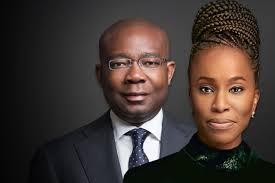
Aig-Imoukhuede Foundation opens applications for 6th Cohort Programme
The Aig-Imoukhuede Foundation is pleased to announce that applications are now open for the sixth cohort of its transformative AIG Public Leaders Programme (AIG PLP).
This flagship six-month executive education initiative, delivered by the University of Oxford’s Blavatnik School of Government, is designed to empower high-potential public sector leaders across Africa with the tools, networks, and strategic insight required to deliver meaningful reform across African public institutions.
Applications are now open to qualified public servants from all English-speaking African countries and will close on Sunday, April 12, 2026. The programme commences in October 2026.
Since its inception in 2021, the AIG PLP has built a formidable reputation for creating tangible impact.
Alumni from the programme have gone on to design and implement more than 230 reform projects within their ministries, departments, and agencies across Africa.
An impact survey revealed that 62% of alumni have earned promotions or assumed expanded leadership roles post-training, demonstrating the programme’s direct effect on career advancement and institutional influence.
“Across Africa, the complexity of public sector challenges demands more than good intentions. It requires reformers who understand systems, can navigate institutional realities, and are equipped to implement sustainable change.
The AIG PLP is designed to meet this need,” said Ofovwe Aig-Imoukhuede, Executive Vice-Chair of the Aig-Imoukhuede Foundation.
As part of the programme, a PLP alumna, Titilola Vivour-Adeniyi, Executive Secretary of Lagos State DSVA, launched a secure self-reporting tool that allows survivors of domestic and sexual abuse safely document incidents and preserve evidence.
Survivors are already accessing support, and the tool ensures that crucial proof is protected until justice can be sought. This is one of over 230 impactful reform projects being implemented across sectors as diverse as healthcare, finance, agriculture, and education.
We are seeing proof every day that investing in the capacity and leadership potential of people, delivers the kind of transformation that policy alone cannot achieve.”
The AIG PLP is a blended learning experience that combines online sessions with an intensive residential module.
It is offered at no cost to selected participants, with the Foundation covering all costs of the programme including accommodation and feeding during the residential weeks.
Participants gain direct access to world-class faculty from the University of Oxford, and learn to tackle core public sector challenges such as: Negotiating in the public interest. Harnessing digital technology for governance.
Strengthening public organisations.
Upholding integrity in public life.
The curriculum culminates in a capstone reform project, where participants apply their new skills to a real-world challenge within their institution.
This practical component ensures that learning translates directly into actionable solutions.
Interested candidates are encouraged to apply early. For more details on the application process and to apply, please visit the Aig-Imoukhuede Foundation website.
Business
Renewed Hope Ambassadors Inspect RHA Secretariat
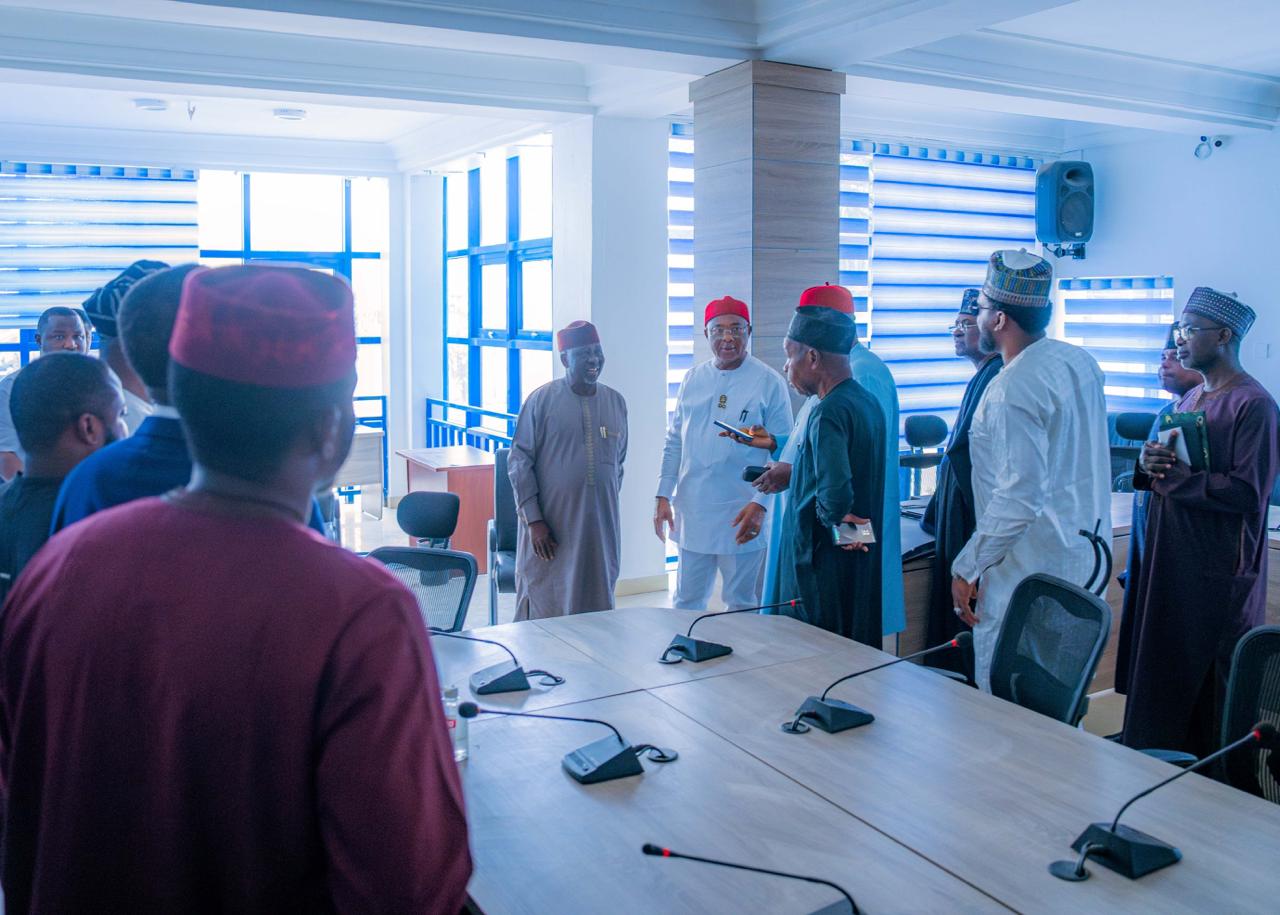
Renewed Hope Ambassadors Inspect RHA Secretariat
Renewed Hope Ambassadors, led by its Director-General and the Governor of Imo State, Hope Uzodinma, alongside Zonal Coordinators (NW, NC, SE), the Media & Publicity Directorate, and other key stakeholders, inspected the RHA Secretariat two days after President Bola Tinubu unveiled the Renewed Hope Ambassadors grassroots engagement drive in Abuja.
-

 celebrity radar - gossips7 months ago
celebrity radar - gossips7 months agoWhy Babangida’s Hilltop Home Became Nigeria’s Political “Mecca”
-

 society6 months ago
society6 months agoReligion: Africa’s Oldest Weapon of Enslavement and the Forgotten Truth
-

 society7 months ago
society7 months agoPower is a Loan, Not a Possession: The Sacred Duty of Planting People
-
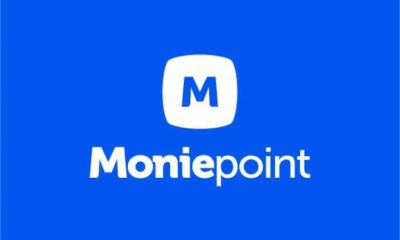
 news3 months ago
news3 months agoWHO REALLY OWNS MONIEPOINT? The $290 Million Deal That Sold Nigeria’s Top Fintech to Foreign Interests




